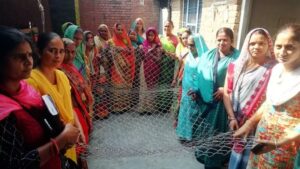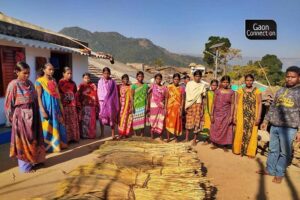Farmer Sethpal Singh has always innovated, experimented and tried new things on his 15-hectare farm, that is no less than a laboratory.
The 55-year-old farmer from Nandifirozpur village in Saharanpur district, Uttar Pradesh, was recently awarded the Padma Shri for his enterprise and spirit of inquiry.
Sethpal is very particular about cultivating vegetables, seasonally. In the summers he grows pumpkins, bitter gourd and bottle gourd, while in the cold winter months he cultivates cauliflower, green chillies, radishes, etc. Apart from vegetables, the farmer also cultivates water chestnuts, not in the water but on land. And breeds the Rohu, Katla and Nain species of fish in his pond.
Learning by doing
It was in 1987, after he graduated from college, that Sethpal Singh decided to take up farming.
“Like other farmers in the region, I too began cultivating sugarcane, wheat and paddy, but faced considerable losses in doing so,” Sethpal told Gaon Connection.
Also Read: Non-pesticidal management in agriculture is a win-win for farmers and consumers
That is when he contacted the Krishi Vigyan Kendra and set about learning more about the benefits of diversifying his crops, from agricultural scientists.
“I learnt there were ways the farmer could earn money every day and since then along with the conventional sugarcane crop, I started growing vegetables, farming mushrooms, water chestnuts besides breeding fish and rearing cattle,” the farmer said.
“I prepare the vegetable saplings in polybags at the nursery and only then transplant them onto the field. The aim is to ensure that after each crop is harvested, the land is ready for the next one,” he explained.
It was difficult to buck the trend, said Sethpal. Other farmers ridiculed his experiments. But the farmer persisted as he strongly felt that having a monocrop was not helping the farmers. “The sugarcane crop takes a long time to grow, then it goes to the mill and even then we do not get the money on time. The farmer needs a regular income to take care of his many expenses, and growing different crops helps,” he said.
Also Read: The journey from a cycle rickshaw driver to an organic farmer
The fact that Sethpal grows the sugarcane in just five hectares of his land and devotes the remaining 10 hectares to vegetables, flowers and water chestnuts, has inspired other farmers to do the same.
Cultivating water chestnuts
It was a chance encounter with another farmer in Saharanpur that encouraged Sethpal to grow water chestnuts too. After consulting with agricultural scientists of the Krishi Vigyan Kendra, he too began growing them in 1997.
“We plant the water chestnuts in the second week of June and by the end of September they start yielding. We barely need to use any pesticides for it,” Sethpal said.
According to him, growing water chestnuts was a better option than growing it in a pond as often, the water bodies are polluted. He said that the quality of the produce grown on land was much better than the ones grown on water, and also fetched a better price.
“After harvesting the water chestnuts, the residual crops are left on the field and they decompose and turn into organic manure. We then plant our vegetables,” he explained.
The farmer cultivates the lotus flower too. The stalk of the lotus or kamal kakdi, as well as the flower sell well and earn him an income.
Not too far away from his land is a four-and- a-half foot pond where Sethpal breeds the Rohu, Katla and Nain species of fish. “They occupy different sections of the pond and this way they remain safe, he explained. The water body also keeps our groundwater charged and the tubewell has water round the year,” Sethpal said.
Also Read: When Guddu, a water chestnut farmer, taught lessons on urban wastewater and agricultural livelihoods
Support of agriculture scientists
The Krishi Vigyan Kendra (KVK) in Saharanpur has stood by Sethpal all through his experiments. The scientists there contributed greatly to Sethpal’s success, but are also very appreciative of the progressive farmer.
“Sethpal is one such farmer in our district who has taught us as much as he has learnt from us,” IK Kushwaha, principal scientist and in-charge of the KVK, told Gaon Connection.
“When other farmers were struggling to earn profits from their sugarcane crops, Sethpal managed to earn handsome profits from his approach to agriculture,” Kushwaha said.
Read the story in Hindi.



















